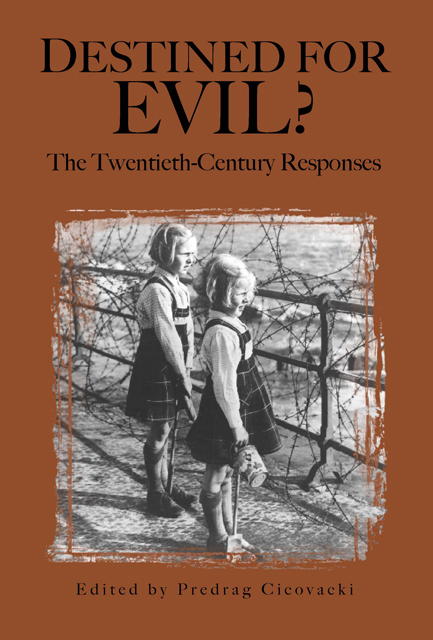Book contents
16 - We Are Prodigals in a Distant Land: An Essay on Thomas Merton
Published online by Cambridge University Press: 17 March 2023
Summary
The purpose of this paper is to render a modest response to the query by St. Augustine: “Whence then comes evil?” I will approach this task by examining the insights of Thomas Merton contained in his book New Seeds of Contemplation. This work deals with the roots of evil within the individual, rather than to offer a graphic treatise of the massive forces of evil so prevalent in our contemporary society. New Seeds of Contemplation is not meant to be a primer for evil—quite the contrary; as the book describes so beautifully, those seeds or “germs of spiritual vitality … come to rest imperceptibly in the minds and wills of men.” My thesis, then, is to begin with fallen man, an alienated man trying to journey away from the forces of evil within himself. As Merton describes the journey: “We are prodigals in a distant country, the ‘region of unlikeness’, and we must seem to travel far in that region before we seem to reach our own land (and yet secretly we are in our own land all the time!).”
Published in 1962, New Seeds of Contemplation is a revision of Merton's earlier book published in 1949 and entitled Seeds of Contemplation. The first book was extremely popular and was translated into thirteen languages. However, Merton was not happy with parts of it and subsequently added and revised some chapters, and wrote a new Author's Note to the revised book. Between the period of 1949 and 1962, Merton evolved as a spiritual person and writer. The infamous epiphany on the corner of Fourth and Walnut in Louisville, KY, on March 18, 1958 was a turning point for Merton as he now realized he was, in fact, part of the world. His previous writings, including Seeds of Contemplation, reflected Merton's distance from the world and a propensity for a dogmatic point of view. New Seeds of Contemplation reflected Merton's emerging perception of the “experiential and existential.” The key difference between the two Mertons, if you will, is his evolution from a unity with others “discovered in prayer” to a “grasp of solidarity with other men brought to prayer, so that unity can be experienced at a deeper level.”
- Type
- Chapter
- Information
- Destined for Evil?The Twentieth-Century Responses, pp. 197 - 204Publisher: Boydell & BrewerPrint publication year: 2005

